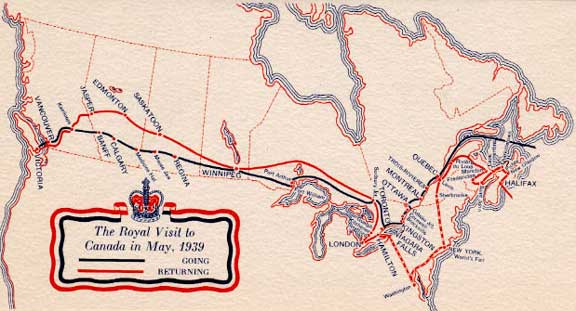 |
|
|
Then There Was War |
|
| FTLComm - Regina - Friday, march 8, 2002 | |
Every so often an event takes place that is both important then and continues to be important long into the future. Trouble, of the most dire kind was developing around the world. Japan had invaded China and the fighting there was horrific as the weapons of a modern world were unleashed Italy had launched an invasion of Ethiopia and the League of Nations proved to be remarkably impotent as countries like Canada abdicated their responsibility and refused to vote on sanctions against aggression. The civil war in Spain was a sad costly struggle as German was able to demonstrate and test its newly developing military might.  The English were a long way from recovering from the anguish and depression caused by World War I and were faced in 1936 with a King who was shockingly friendly with the powerful and sinister dictator of Germany, Austrian artillery corporal, Adolph Hitler. It is hard to tell from our vantage point in history if we will ever really know what happened. The story the King told his people and the world was that he was abdicating because he could not go on without the woman he loved. Hard to believe then and even harder to believe now, but he left office and the monarchy of England feel on the shoulders of a pleasant, quiet, civilised man who stuttered, but was married to a socially brilliant woman(still quite alive today at 101 years of age), not unlike her grandson's late wife. Together, they were faced with getting their country and their allies, ready for a war that was ever so close and would be a struggle like no other to ever face that tiny island nation. Four years after becoming the king, in an era when news and awareness did not move with the speed we know today, the King and Queen were on a coast to coast tour of North America. Spending a whole month whistle stopping their way across on the CPR and back on the CNR, with a detour to Washington and New York. They needed attention and would soon need total commitment from the people of Canada, who had back England to victory in World War I and the assistance of the industrial isolationist, United States, was absolutely vital. |
|
 |
|
| Americans, protesting as they do, that they are free of their attachment to Britain
and the Royal Family then and now, have a remarkable fascination for their roots
and the monarchy. During the desperate thirties, a British accent was the ticket
to stardom in the movie industry almost to the extent that being Canadian today is
the mark of an American music superstar. Reporters, film crews and photographers
covered the journey and Americans ate it up just as did the people of the Dominion. The thirties had ravaged Canada and America and in the late spring and early summer of 1939 the chance to clean up, put on a bit of a show and bask in some self awareness, was just what a poverty weary Canada needed. Bill McVicar snapped the picture above at the Regina station as the King and Queen embarked on the train once more (likely on May 25, or 26th, 1939). Though I was unable to confirm the man seen to the right of Queen Elizabeth, in all likelihood this may be, then premier of Saskatchewan, William John Patterson, a Liberal who would return as the provinces Lt. Governor in the 1950s. Mr. McVicar's picture is particularly interesting not just for capturing the Royal couple, but for the interesting context of the picture. The highly decorated R.C.M.P. Sergeant was to young to acquired that chest of service medals in World War I having been a Mountie but fifteen years (three stars left shoulder) so it is reasonable to assume that this fellow must have been involved in some conflict in the past decade, the most interesting such expedition was the contingent of Mounties who were sent off to Russia during the height of its raging revolutionary war. |
|
 |
|
| Its hard to tell much about the origin of these pictures as Mr. McVicar passed on
some time ago and these pictures were found in his collection. We believe that many
of these were purchased at the time, as they were printed on cardboard like material
while the one at the train looks like an original. People across the country considered this a very significant event and expected people like myself, decades later, to look back on this as a turning point in Canadian history. For indeed it was. My mother, a teenager at the time, would speak of the Royal visit with a special
War would forever be associated with the Royal visit as everything would be dated pre and post war. |
|
 |
|
|
Timothy W. Shire |
|
| References: | |
Humbolt Journal account of July 8, 1939 train stop by King and Queen |
|
|
|
|
a collection of something called FDCs on the royal visit |
|
|
|
|
an account of the royal tour as it related to their train travel |
|
|
|
|
This account explains the importance of the visit to Regina |
|
|
|
|
Stamp collectors record historical visit |
|
|
|
|
Story of the visit to New Brunswick |